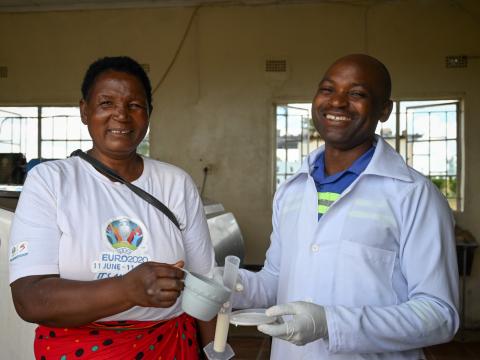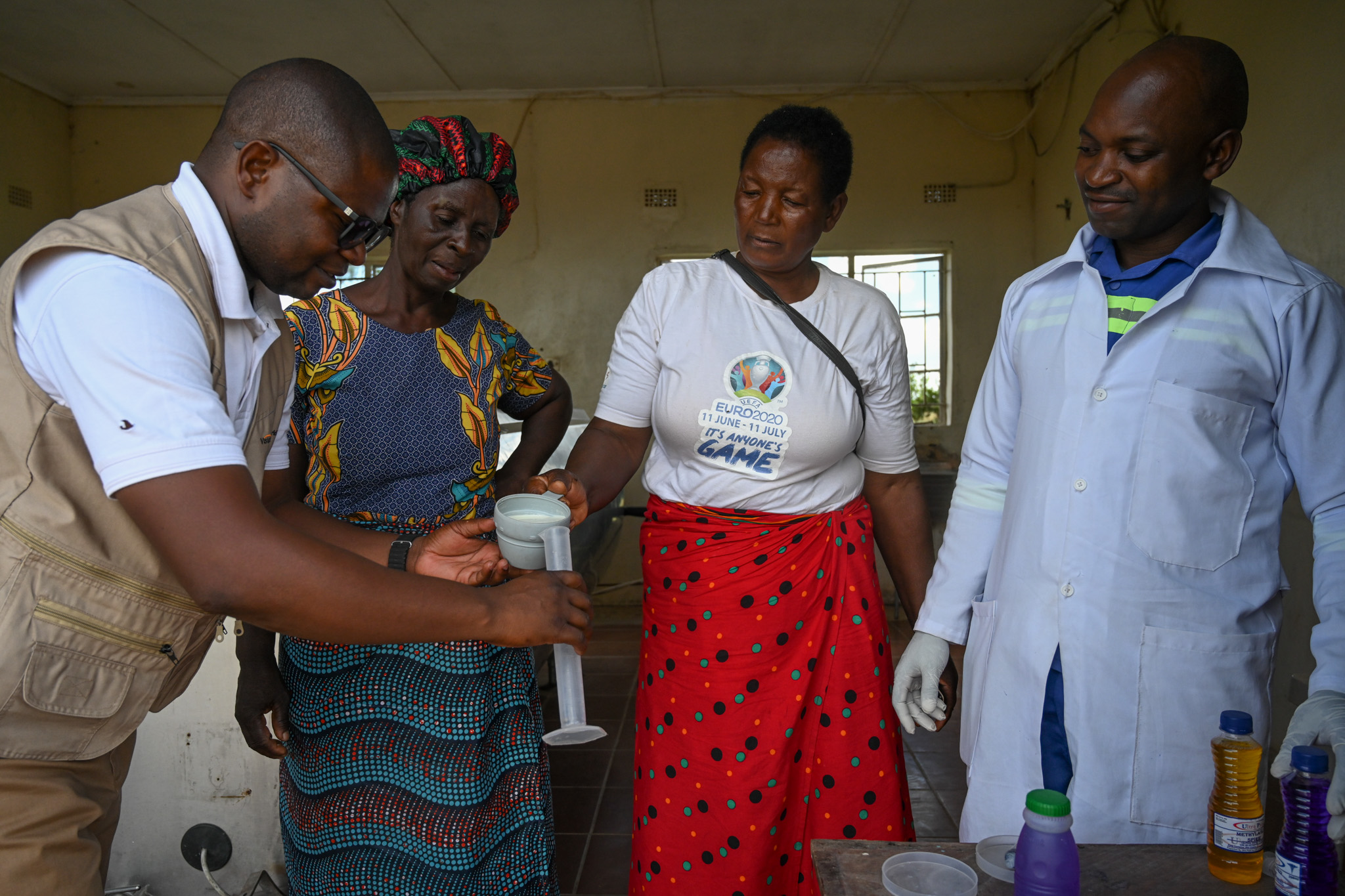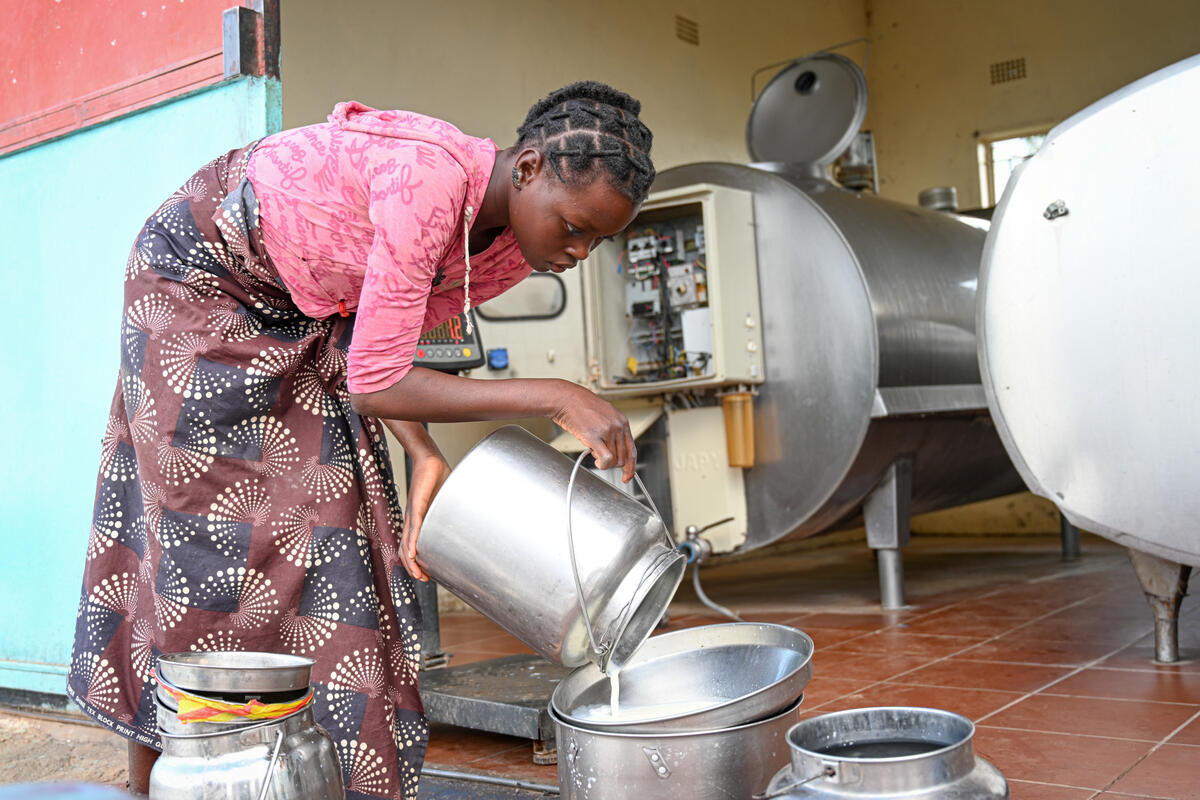Milk Collection Center Empowers Munjile Village in Zambia's Southern Province

The early morning air of Munjile community is filled with a gentle clinking of milk cans and the soft murmur of cows. Among the bustle stands Alice Chijikwa, a 64-year-old mother of six, her face beaming with quiet pride. Just a few years ago, Alice’s mornings were much different filled with uncertainty and the daily question of how she would provide for her family.
Alice and her husband have always been small-scale dairy farmers, but like many rural women in Zambia, she faced immense challenges. Without a reliable market, most of the milk their cows produced would spoil before they could sell it. And in many times, they would end up giving it to their neighbours. Her family often depended on their small vegetable garden and lived hand-to-mouth.
“Most days, I would milk my cows and watch the milk go bad or because I had no way to keep it cool or transport it quickly,” Alice recalls. “When someone came to buy, they offered almost nothing for it.”

One of the biggest challenges Alice and many other small-scale farmers in her community faced was the long distance to the nearest milk collection centre.
Like many smallholder farmers in rural Zambia, Alice was caught in a cycle of poverty. Without access to proper storage, reliable markets, or financial support, her hard work brought in just enough to survive but never enough to thrive.
“We used to depend on the small produce we could manage to grow, but it was not enough to see us through the whole year,” she recalls. “My husband’s skill in arts and craft also helped to contribute to the little we could afford.”
Meals were sometimes missed, and the future felt like an unending struggle. “Some days we could only afford to have two proper meals in a day. But most of all, my heart would break when I saw my children being chased from school because we had not paid school fees for them,” Alice says.

But in 2010, Alice and her fellow farmers came together and sought ways and means of how they could start cooperative.
“In 2010, we came together as a community and organised ourselves to form a cooperative. Our main goal was to find a sustainable way to improve our livelihoods, and that’s when the idea of establishing a milk collection centre was born,” says Alice. “We wanted a central place where farmers could bring their milk, ensuring better quality control, fair pricing, and easier access to markets."
With support from World Vision Zambia, the construction of the milk collection centre commenced. The initiative was part of a broader effort to strengthen rural livelihoods, empower women farmers, and enhance food security through sustainable agricultural development.
“World Vision came on board and supported us with 70% of the building while we mobilised ourselves and contributed the 30% with local building materials,” she says.
In 2013 Munjile milk collection centre handed over to the community and it has provided support to over 200 dairy farmers. Armed with new knowledge and a sense of purpose, Alice joined a dairy cooperative supported by World Vision. This gave her access to veterinary services and a ready market that paid fair prices.
To further support farmers like Alice in Munjile Village, World Vision conducted Biblical Empowered Worldview training, aimed at transforming mindsets, building resilience, and helping individuals recognize their God-given potential.